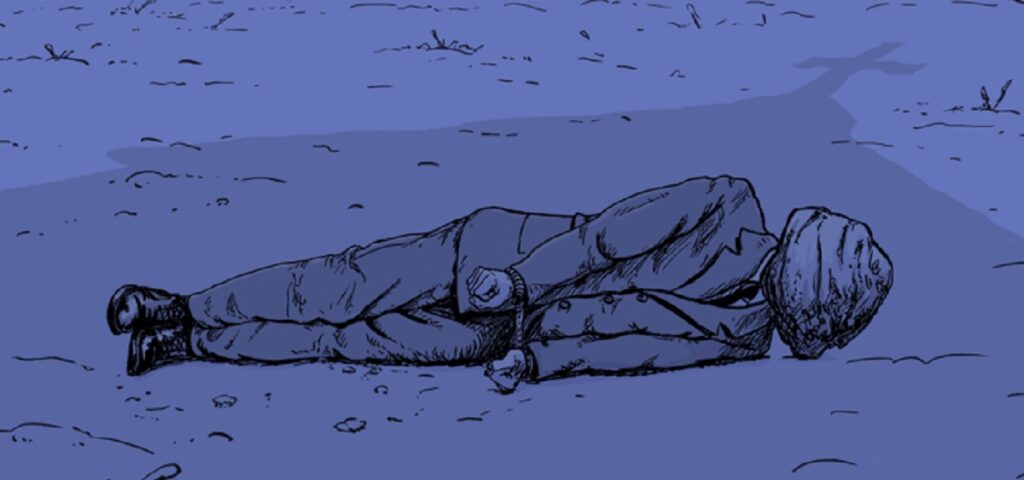100 years ago, on February 24, the 3rd trial of Adélard Delorme began. The Catholic priest was accused of murdering his brother.

On January 7, 1922, the lifeless body of Raoul Delorme was found in a vacant lot in Montreal’s Snowdon neighbourhood. Aged 24, the victim had been shot six times in the neck and head, at least once at point-blank range.
A commerce student, Raoul Delorme was the youngest son of a well-off family on Saint-Hubert Street.
Detective Sergeant Georges Farah-Lajoie was put in charge of the investigation. Farah-Lajoie was famous for uncovering a plot during the International Eucharistic Congress in Montreal in 1910. The plot aimed at destroying the high altar erected on the slopes of Mount Royal.
The detective sergeant quickly suspected Raoul’s brother, Adélard Delorme, a Catholic priest. The case was so controversial that Adélard Delorme underwent four trials between 1922 and 1924 before a jury finally reached a verdict.
Thou shall not kill
According to L’affaire Delorme, a graphic novel by Grégoire Mabit and Michel Viau published in 2019, religious authorities were doing everything in their power to hush up the case: silencing witnesses, intimidating the wives of certain police officers and putting pressure on the government.
Detective Sergeant Farah-Lajoie was also the target of several attacks related to his Syrian origins. Though he was Christian, some implied that he attacked the Church deliberately because of his ethnicity.
To discredit him, the La Presse newspaper went so far as to publish a photo of him taken at a masquerade ball dressed as an Arab leader, like Lawrence of Arabia.
A first in North America
The Delorme case was the first trial in North America where ballistic evidence was submitted. The technique was so little known at the time that lengthy explanations were needed to help jurors understand how it works.
Another novelty in this trial: Detective Sergeant Georges Farah-Lajoie used a collapsible model house to present the alleged crime scene – the Delorme home.
But despite the mountain of evidence against him, Reverend Delorme was finally acquitted during the fourth trial in October 1924.
The priest was able to live comfortably thanks to the fortune he inherited from his murdered brother, and that’s without counting the $25,000 life insurance premium he took out on Raoul’s life, two weeks before his brother’s death.
A brilliant detective
Despite his record of service, Georges Farah-Lajoie was fired from the Montreal police force a few years after Reverend Delorme’s acquittal.
The city even refused to pay him a pension, claiming that a medical examination had found him unfit for service. George Farah-Lajoie went on to freelance as a private detective, and in 1939 was appointed special agent to the Attorney General’s Office in Montreal.
He died two years later.
Today, he’s considered one of the most brilliant detectives Montreal has ever known.
|
Want to know more about criminal law? Check out our articles on the topic: |





